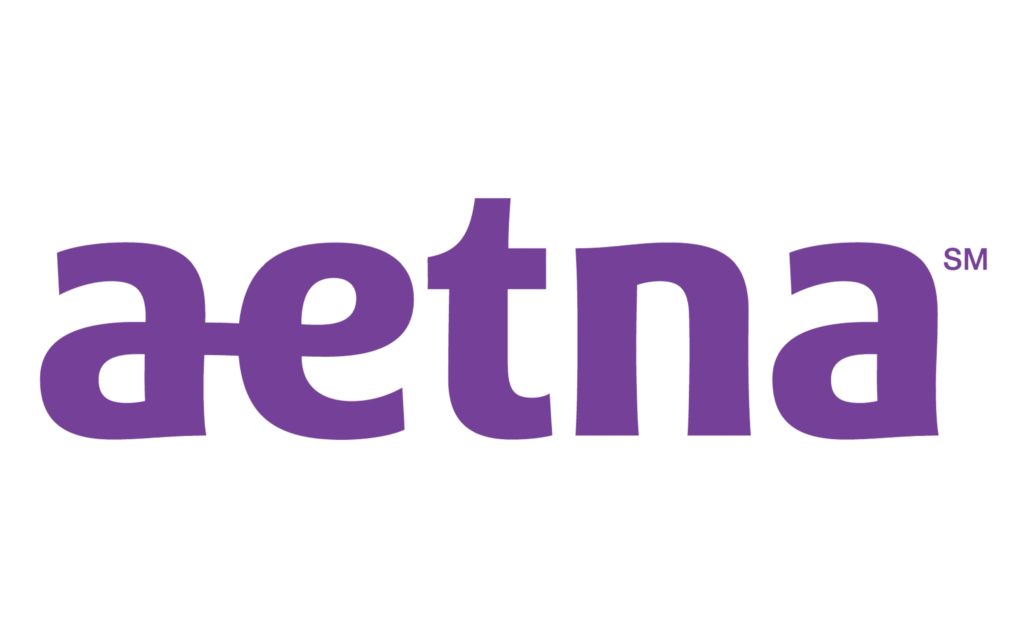Understanding Opioid Addiction
Opioid addiction is a serious and complex condition that affects individuals and society as a whole. In order to comprehend the significance of opioid addiction treatment, it is essential to understand what opioid addiction is and the impact it has on individuals and society.
What is Opioid Addiction?
Opioid addiction, also known as opioid use disorder, is a type of substance use disorder characterized by compulsive use of opioid drugs, even when the person wants to stop or when it negatively affects their physical and emotional well-being. Opioids are a class of drugs that include prescription pain medications like oxycodone, hydrocodone, and fentanyl, as well as illegal drugs like heroin.
Opioids bind to specific receptors in the brain, spinal cord, and other areas of the body, reducing pain and producing pleasurable effects. However, repeated use of opioids can lead to changes in the brain, resulting in tolerance, dependence, and addiction. Tolerance occurs when higher doses of opioids are needed to achieve the desired effect, while dependence leads to withdrawal symptoms when the drug is stopped or reduced.
Opioid addiction is a complex disease with specific symptoms and a pattern of progression. Approaching substance use disorder as a disease is useful in planning effective treatment and reducing the stigma associated with addiction (Johns Hopkins Medicine). It is important to remember that opioid addiction can affect anyone, regardless of age, gender, or background.
The Impact of Opioid Addiction on Individuals and Society
The impact of opioid addiction extends beyond the individual struggling with the disorder. From 1999 to 2020, more than 800,000 Americans died from drug overdoses, and increasing rates of drug addiction have contributed to recent decreases in U.S. life expectancy. The effects of opioid addiction are not limited to physical health; they also encompass emotional, social, and economic well-being.
Opioid addiction can lead to a range of negative consequences, including impaired cognitive function, poor mental health, strained relationships, loss of employment, financial difficulties, and involvement in criminal activities. Additionally, the societal impact of opioid addiction includes increased healthcare costs, burden on public resources, and strain on families and communities.
Understanding the profound impact of opioid addiction emphasizes the importance of effective treatment and support for individuals struggling with this disorder. By addressing the root causes and providing comprehensive care, individuals can find hope on the path to healing.
In the next sections, we will explore various approaches to opioid addiction treatment, including medication-assisted treatment, behavioral therapies, and complementary and alternative medicine. By combining these approaches, individuals can receive the comprehensive care they need to overcome opioid addiction and rebuild their lives.
Approaches to Opioid Addiction Treatment
When it comes to treating opioid addiction, there are several approaches that have proven to be effective. These include medication-assisted treatment (MAT) and behavioral therapies.
Medication-Assisted Treatment (MAT)
Medication-Assisted Treatment (MAT) is a comprehensive approach to opioid addiction treatment that combines medications with counseling and behavioral therapies. This approach has been shown to improve outcomes for patients with opioid use disorder (Pew Trusts). MAT has been proven to reduce opioid use, opioid overdose deaths, criminal activity, and infectious disease transmission among individuals with opioid use disorder (Pew Trusts).
Medication-assisted treatment is considered the gold standard for opioid addiction treatment. It involves the use of medications like buprenorphine, or naltrexone, along with counseling and behavioral therapies. These medications help to stabilize brain changes caused by opioid addiction, reduce cravings, and prevent withdrawal symptoms.
Here are some key medications used in medication-assisted treatment for opioid addiction:
Buprenorphine: A Partial Opioid Agonist
Buprenorphine is a partial opioid agonist that can help relieve withdrawal symptoms and cravings. It can be prescribed by qualified healthcare providers in various settings, including office-based settings, making it more accessible for patients.
Naltrexone: An Opioid Antagonist
Naltrexone is an opioid antagonist that blocks the effects of opioids on the brain and reduces cravings. It can be prescribed by healthcare providers and is available as a tablet or an extended-release injection.
Behavioral Therapies for Opioid Addiction
In addition to medication-assisted treatment, behavioral therapies play a crucial role in opioid addiction treatment. These therapies help patients develop coping strategies, address underlying issues, and modify their behaviors to support recovery (ASAM).
Some common behavioral therapies used in opioid addiction treatment include:
- Cognitive-Behavioral Therapy (CBT): This therapy helps individuals identify and change negative thought patterns and behaviors associated with drug use. It aims to develop healthier coping mechanisms and improve problem-solving skills.
- Contingency Management (CM): This therapy provides positive reinforcement, such as rewards or privileges, for abstaining from drug use. It helps to motivate individuals to stay drug-free and encourages healthy behaviors.
- Group Therapy: Group therapy offers a supportive environment where individuals with opioid addiction can share their experiences, provide mutual support, and learn from one another.
- Individual Counseling: Individual counseling allows individuals to work one-on-one with a therapist to address their specific needs, set goals, and develop personalized strategies for recovery.
By combining medication-assisted treatment with behavioral therapies, individuals with opioid addiction can receive comprehensive care that addresses both the physical and psychological aspects of their addiction. This integrated approach increases the chances of successful recovery and long-term sobriety.
If you or someone you know is seeking opioid addiction treatment, it is important to consult with a healthcare provider or treatment facility that specializes in substance abuse treatment. They can assess your individual needs and recommend a personalized treatment plan that may include medication-assisted treatment and behavioral therapies.
Why Choose Carolina Recovery Solutions in Asheville, NC
When seeking effective and comprehensive opioid addiction treatment, choosing the right facility is crucial for successful recovery. Carolina Recovery Solutions in Asheville, NC offers a range of specialized services and programs designed to meet the unique needs of individuals struggling with drug addiction. Here are some compelling reasons why you should consider Carolina Recovery Solutions as your option for drug rehab, drug detox, and addiction treatment services.
Comprehensive Drug Rehab Services
Carolina Recovery Solutions provides comprehensive drug rehab services that encompass every aspect of the recovery process. From initial assessment and detoxification to ongoing counseling and aftercare support, their team of experienced professionals is dedicated to guiding individuals through each stage of their recovery journey.
Their residential treatment program offers a supportive and structured environment where individuals can focus on their healing and recovery. With a multidisciplinary approach that combines evidence-based therapies, group counseling, and individualized treatment plans, Carolina Recovery Solutions ensures that each person receives the personalized care they need to overcome opioid addiction.
Specialized Drug Detox Programs
The first step in the recovery process is often drug detoxification, which helps individuals safely rid their bodies of drugs while managing withdrawal symptoms. Carolina Recovery Solutions offers specialized drug detox programs that are tailored to the unique needs of individuals struggling with opioid addiction.
Under the care of their experienced medical team, individuals receive close monitoring and medical support to ensure a safe and comfortable detoxification process. The compassionate staff at Carolina Recovery Solutions understands the challenges of withdrawal and works to minimize discomfort while providing the necessary medical interventions to promote a successful detoxification experience.
Individualized Addiction Treatment Plans
At Carolina Recovery Solutions, they recognize that addiction is a highly personal and complex condition that requires individualized care. They believe in the power of personalized treatment plans that address the unique needs, circumstances, and goals of each individual.
By conducting a thorough assessment, their team develops tailored addiction treatment plans that incorporate evidence-based approaches, such as medication-assisted treatment (MAT) and behavioral therapies. MAT, as stated by Pew Trusts, is an effective approach for treating patients with opioid use disorder, combining medications with counseling and behavioral therapies to provide a comprehensive approach to recovery.
Carolina Recovery Solutions utilizes FDA-approved medications such as buprenorphine, and naltrexone to help stabilize brain chemistry, reduce cravings, and block the effects of opioids, allowing individuals to focus on their recovery journey (Pew Trusts). By combining these medications with counseling and behavioral therapies, Carolina Recovery Solutions provides a holistic approach that addresses the physical, emotional, and psychological aspects of addiction.
Choosing Carolina Recovery Solutions in Asheville, NC means choosing a treatment center that prioritizes individualized care, evidence-based practices, and a compassionate approach to recovery. With their comprehensive drug rehab services, specialized drug detox programs, and individualized addiction treatment plans, Carolina Recovery Solutions is committed to helping individuals overcome opioid addiction and achieve lasting recovery.
Opioid Addiction Treatment FAQ's
Is Medication-Assisted Treatment (MAT) a requirement for all individuals in the Opioid Addiction Treatment program?
MAT is not a requirement for all individuals but may be recommended based on individual needs and circumstances. Our medical team assesses and prescribes medications when appropriate.
What types of therapeutic modalities are included in the Opioid Addiction Treatment program?
Our program includes a variety of therapeutic modalities, such as cognitive-behavioral therapy, dialectical behavior therapy, and holistic approaches like mindfulness practices and expressive arts therapy.
How long does the Opioid Addiction Treatment program typically last?
The duration of the program varies based on individual progress and the level of care needed. Our team collaborates with clients to determine the appropriate length of treatment.
Is family involvement encouraged in the Opioid Addiction Treatment?
Yes, family involvement is encouraged and supported through educational sessions and family therapy. We recognize the importance of a supportive family environment in the recovery process.
What ongoing support is provided after completing the Opioid Addiction Treatment program?
After completing the program, individuals transition to aftercare support, which may include continued counseling, support groups, and resources to assist in maintaining long-term recovery.







